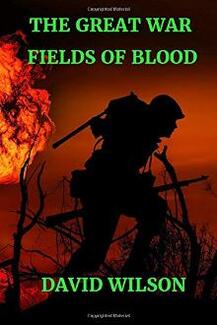The Great War: Fields Of Blood relates the strategies and action on The Western Front during The First World War. The flower of our youth went out to France and Flanders and it was a fine flower of gallant boyhood, clean, for the most part eager, not brutal except by intensive training, simple in minds and hearts, chivalrous in instinct, without hatred, adventurous, laughter-loving and dutiful. The bravery of our troops on the Western Front, their patience, their cheerfulness, suffering and agony; yet with all those words describing their everyday life it is impossible to exaggerate the splendour of their stoic spirit or the measure of their sacrifice. The carnage left behind by The First World War was staggering. By the end of the war an estimated ten million soldiers had been killed. That averages to about 6,500 deaths a day, every day. Plus, millions of civilians were also killed. The War is especially remembered for its slaughter as it was one of the bloodiest wars in history.

by David Wilson
About the book

David Wilson
I live in the Highlands of Scotland with my wife, Tess, surrounded by the beautiful landscape of this area. Deer and rabbits are often in the garden while buzzards and kestrels can be seen on the fenceposts. The tranquillity of the area is where I gain my inspiration to write. I love to walk in the hills with my collie dog, Matt.
As an Amazon Associate, humanmade.net earn from qualifying purchases.

Comments